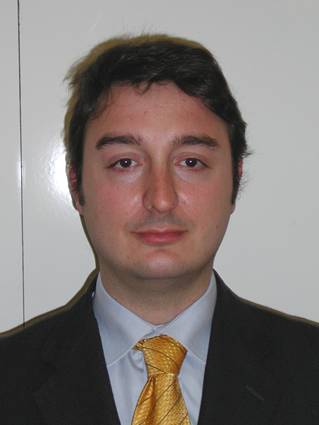Studying at the University of Verona
Here you can find information on the organisational aspects of the Programme, lecture timetables, learning activities and useful contact details for your time at the University, from enrolment to graduation.
Academic calendar
The academic calendar shows the deadlines and scheduled events that are relevant to students, teaching and technical-administrative staff of the University. Public holidays and University closures are also indicated. The academic year normally begins on 1 October each year and ends on 30 September of the following year.
Course calendar
The Academic Calendar sets out the degree programme lecture and exam timetables, as well as the relevant university closure dates..
| Period | From | To |
|---|---|---|
| 1° Periodo di lezioni | Oct 1, 2013 | Dec 13, 2013 |
| Periodo riservato ad eventuali recuperi di lezioni - dicembre 2013 | Dec 14, 2013 | Dec 17, 2013 |
| 2° Periodo di lezioni - febbraio/aprile | Feb 11, 2014 | Apr 14, 2014 |
| 2° Periodo di lezioni - aprile/maggio | Apr 23, 2014 | May 6, 2014 |
| Periodo riservato ad eventuali recuperi di lezioni - maggio 2014 | May 7, 2014 | May 9, 2014 |
| Session | From | To |
|---|---|---|
| Sessione straordinaria 13/14 - studenti f.c. - dicembre 2013 | Dec 18, 2013 | Dec 21, 2013 |
| 1° appello - Sessione invernale 13/14 | Jan 7, 2014 | Jan 13, 2014 |
| 2° appello - Sessione invernale 13/14 | Feb 4, 2014 | Feb 10, 2014 |
| Sessione straordinaria 13/14 - studenti f.c. - aprile 2014 | Apr 15, 2014 | Apr 17, 2014 |
| 1° appello - Sessione estiva 13/14 | May 12, 2014 | May 17, 2014 |
| 2° appello - Sessione estiva 13/14 | Jun 9, 2014 | Jun 14, 2014 |
| 3° appello - Sessione estiva 13/14 | Jul 7, 2014 | Jul 12, 2014 |
| 1° appello - Sessione autunnale 13/14 | Sep 1, 2014 | Sep 6, 2014 |
| 2° appello - Sessione autunnale 13/14 | Sep 24, 2014 | Sep 30, 2014 |
| Session | From | To |
|---|---|---|
| Termine presentazione tesi di laurea - settembre 2013 | Sep 27, 2013 | Sep 27, 2013 |
| Sessione autunnale 13/14 | Oct 21, 2013 | Oct 22, 2013 |
| Termine presentazione tesi di laurea - gennaio 2014 | Jan 10, 2014 | Jan 10, 2014 |
| Sessione invernale 13/14 | Feb 3, 2014 | Feb 3, 2014 |
| Termine presentazione tesi di laurea - febbraio 2014 | Feb 28, 2014 | Feb 28, 2014 |
| Sessione invernale 13/14 - marzo 2014 | Mar 24, 2014 | Mar 26, 2014 |
| Termine presentazione tesi di laurea - giugno 2014 | Jun 9, 2014 | Jun 9, 2014 |
| Sessione estiva 13/14 | Jul 3, 2014 | Jul 4, 2014 |
| Period | From | To |
|---|---|---|
| Festa di Ognissanti | Nov 1, 2013 | Nov 1, 2013 |
| Festa dell'Immacolata Concezione | Dec 8, 2013 | Dec 8, 2013 |
| VACANZE DI NATALE | Dec 22, 2013 | Jan 6, 2014 |
| VACANZE DI PASQUA | Apr 18, 2014 | Apr 22, 2014 |
| Festa della Liberazione | Apr 25, 2014 | Apr 25, 2014 |
| Festa dei lavoratori | May 1, 2014 | May 1, 2014 |
| Festa del S. Patrono S. Zeno | May 21, 2014 | May 21, 2014 |
| Festa della Repubblica | Jun 2, 2014 | Jun 2, 2014 |
Exam calendar
Exam dates and rounds are managed by the relevant Law Teaching and Student Services Unit.
To view all the exam sessions available, please use the Exam dashboard on ESSE3.
If you forgot your login details or have problems logging in, please contact the relevant IT HelpDesk, or check the login details recovery web page.
Should you have any doubts or questions, please check the Enrollment FAQs
Academic staff
 giovanni.alberti@univr.it
giovanni.alberti@univr.it
 mariacaterina.baruffi@univr.it
mariacaterina.baruffi@univr.it

Dalla Massara Tommaso
 tommaso.dallamassara@univr.it
tommaso.dallamassara@univr.it
 +39 045 8028810
+39 045 8028810
 roberto.flor@univr.it
roberto.flor@univr.it
 +39 045 8028812
+39 045 8028812
 rita.maggi@univr.it
rita.maggi@univr.it
 martina.menon@univr.it
martina.menon@univr.it

Patrono Paolo
 paolo.patrono@univr.it
paolo.patrono@univr.it
 +39 045 8028813
+39 045 8028813
 federico.reggio@univr.it
federico.reggio@univr.it
 lorenzo.salvatore@univr.it
lorenzo.salvatore@univr.it
Strano Silvana
 silvana.stranoligato@univr.it
silvana.stranoligato@univr.it
 +39 045 8028856
+39 045 8028856
 claudio.tomazzoli@univr.it
claudio.tomazzoli@univr.it
 alice.valdesalici@univr.it
alice.valdesalici@univr.it
 marcella.veronesi@univr.it
marcella.veronesi@univr.it

Zini Francesco
 francesco.zini@univr.it
francesco.zini@univr.it
 +39 045 8028883
+39 045 8028883
Study Plan
The Study Plan includes all modules, teaching and learning activities that each student will need to undertake during their time at the University.
Please select your Study Plan based on your enrollment year.
1° Year
| Modules | Credits | TAF | SSD |
|---|
Principles of economics
Roman Law Institutions
History of Medieval and Modern Law
2° Year activated in the A.Y. 2014/2015
| Modules | Credits | TAF | SSD |
|---|
Un insegnamento a scelta tra i seguenti3° Year activated in the A.Y. 2015/2016
| Modules | Credits | TAF | SSD |
|---|
Terminologia giuridica di una lingua straniera4° Year activated in the A.Y. 2016/2017
| Modules | Credits | TAF | SSD |
|---|
Un insegnamento a scelta tra i seguenti5° Year activated in the A.Y. 2017/2018
| Modules | Credits | TAF | SSD |
|---|
Cinque insegnamenti a scelta tra i seguenti| Modules | Credits | TAF | SSD |
|---|
Principles of economics
Roman Law Institutions
History of Medieval and Modern Law
| Modules | Credits | TAF | SSD |
|---|
Un insegnamento a scelta tra i seguenti| Modules | Credits | TAF | SSD |
|---|
Terminologia giuridica di una lingua straniera| Modules | Credits | TAF | SSD |
|---|
Un insegnamento a scelta tra i seguenti| Modules | Credits | TAF | SSD |
|---|
Cinque insegnamenti a scelta tra i seguentiLegend | Type of training activity (TTA)
TAF (Type of Educational Activity) All courses and activities are classified into different types of educational activities, indicated by a letter.
Type D and Type F activities
Modules not yet included
Juvenile Law (2016/2017)
Teaching code
4S00354
Teacher
Coordinator
Credits
6
Also offered in courses:
- Juvenile Law of the course Bachelor’s degree in Law Services
Language
Italian
Scientific Disciplinary Sector (SSD)
IUS/17 - CRIMINAL LAW
Period
2° periodo di lezioni - aprile/maggio 2017, 2° periodo di lezioni - febbraio/aprile 2017
Learning outcomes
The course will give students a wide and systematic framework of the legal provisions concerning the minors’ protection. Special attention will be paid to the legal system regulating the commission of a crime by a minor. This topic requires state interventions in order to realize the rights and the superior interest of the minor, as recognized by the Italian Constitution such as the International Charters and legal sources.
The analysis of the Juvenile Criminal Justice, created through the interpretations (expecially of the Constitutional Court) of the provisions introduced by the r.d. of 1934 and the Penal Code of 1930 and the legislative reforms is aimed at determining the main scopes of this special sector of the criminal law. At the same time it will allow to understand the solutions adopted by the Italian legal system to combine the aims and the characters of the criminal law and the protection of the development of the minors’ educational process.
The course will equip students with the specific juridical competences, both substantial and processual, necessary for all the professional dealing with this delicate sector.
In order to complete the framework of the minors’ protection in the field of the criminal law, some specific provisions concerning the mistreatment and child sexual exploitation and abuse will be taken into consideration. This will permit to underline the main characteristics such as the limits of the criminal law in this field.
Program
The course will focus on the following aspects: Juvenile delinquency – The nature and the evolution of the juvenile justice system – International sources – Juvenile court system: civil, administrative and criminal jurisdiction – Juvenile criminal responsibility – Delinquency assessment – The juvenile sanction system - “Traditional” and “new” institutional measures concerning juvenile crime – Rules of juvenile procedure: main principles, authorities, precautionary, cautionary and preventative measures: preliminary hearing – Criminal enforcement and penitentiary measures - Social dangerousness of children and security measures – Protection of children victims of a crime – Exploitation and abuse of children.
Teaching methods
The teaching methods used for both attending and non-attending students are different.
For the students who will attend the course, the didactic method will consist in lectures given by the professor on the most important topic of the program. The lectures will be aimed at trasmitting the fundamental notions of the course and the main instruments to understand the legal problems related to the course. Some specific seminars would be carried out in order to analyze some specific parts of the program concerning the recent legislative modifications and the jurisprudence, in accordance with the particular interests of the students. Furthermore, specific works, doctrinal articles and judgments will be suggested during the course.
With regards to the students who will not attend the course, the study of the recommended books will be integrated thanks to the support of the professor. They will update the students on specific novelties (case law, legislation, etc.) through specific communications available on line.
During the entire academic year all the students will have the possibility to contact the professor and to meet her during the specific time dedicated to them and indicated on the Department’s website.
Recommended books
E. PALERMO FABRIS – A. PRESUTTI (eds.), Diritto e procedura penale minorile, vol. V del Trattato di diritto di famiglia, directed by P. Zatti, Giuffrè, Milano, last edition.
As an alternative:
M. BARGIS (ed.), Procedura penale minorile, Giappichelli, Torino, 2016
Specific works, doctrinal articles and judgments will be suggested during the course
Other bibliographic indications on the exploitation and abuse of children and on the children as victims of a crime will be furnished during the course.
Examination Methods
The exam will be in Italian and consists of an oral interview. It has the goals to verify the following elements:
-depth and extent of the knowledge achieved;
-language properties;
-ability to connect in a systematic way the knowledge achieved;
-analytical and argumentative skills.
The students who have attended the course and wish to deepen their study on a particular subject, in accordance with the professor, will have the possibility to present a short paper on specific topics analyzed during the course, object of the oral interview directed to verify the knowledge achieved.
The evaluation runs on a scale from 0 to 30 (successful completion of the examination starts from 18)
Teaching materials e documents
-
 PROGRAMMA E TESTI CONSIGLIATI
(msword, it, 43 KB, 01/08/16)
PROGRAMMA E TESTI CONSIGLIATI
(msword, it, 43 KB, 01/08/16)
Career prospects
Module/Programme news
News for students
There you will find information, resources and services useful during your time at the University (Student’s exam record, your study plan on ESSE3, Distance Learning courses, university email account, office forms, administrative procedures, etc.). You can log into MyUnivr with your GIA login details: only in this way will you be able to receive notification of all the notices from your teachers and your secretariat via email and soon also via the Univr app.
Language skills
Graduation
Internships
Internships are aimed at enabling students to gain direct knowledge of the world of work and to acquire specific professional skills.
Internships are carried out under the responsibility of an individual lecturer, and can be carried out in professional firms, public administration bodies and companies recognised by the University of Verona.
Any CFU credits gained by doing internships will be recognised and recorded by the University in accordance with the relevant University regulations in force (Regolamento d’Ateneo per il riconoscimento dei crediti maturati negli stage universitari).
For further information on internships, please go to: https://www.univr.it/it/i-nostri-servizi/stage-e-tirocini.












































